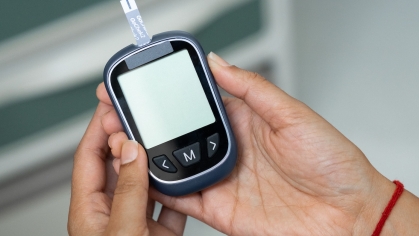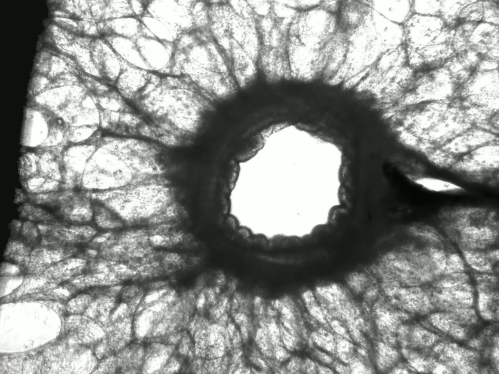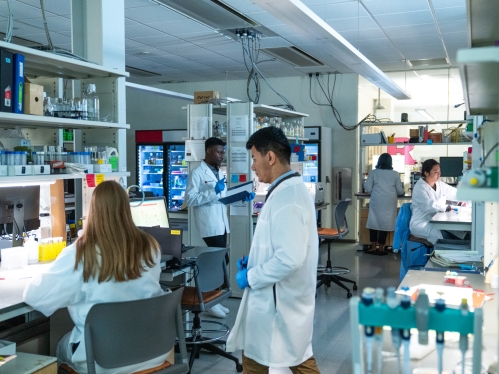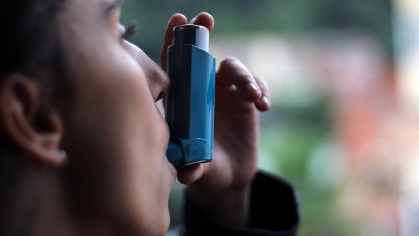
Scientists at Rutgers Health have discovered that a simple blood test could diagnose asthma and determine its severity, a breakthrough that could make asthma diagnosis easier and faster, and help doctors better monitor and treat the disease.

We Attack Asthma
Advancing breakthroughs so we can all breathe easy
1 in 4 kids in U.S. cities suffer from asthma.
About five percent of Americans live with asthma, including millions across New Jersey. But in our most densely populated areas, children are five times more likely to face this serious lung disease, and getting a diagnosis can take years.
Realities like this are exactly why Rutgers Health exists. At the Rutgers Institute for Translational Medicine and Science, researchers are confronting asthma head-on, finding faster, better ways to identify who’s affected and deliver the most effective treatments.

Cutting diagnosis time. Opening doors to care.
Rutgers Health researchers led by Dr. Reynold Panettieri have discovered that a single drop of blood can be used to diagnose asthma, measure its severity, and guide more effective care.
Today, asthma testing often requires visits to specialists and complex breathing machines that can be hard on kids. For many families, those resources just aren’t easy to access. Soon, answers could be just a quick pinprick away as the team works to make this simple test available in any doctor’s office so everyone can get better, sooner.

Turning Research into Impact
We are attacking asthma from every angle to improve diagnosis, treatment, and quality of life for millions. Learn more about the latest Rutgers Health discoveries and research.

Scientists at Rutgers Health have discovered that a simple blood test could diagnose asthma and determine its severity, a breakthrough that could make asthma diagnosis easier and faster, and help doctors better monitor and treat the disease.

Findings from a first-of-its-kind virtual trial in pulmonary medicine, conducted at Rutgers and other institutions, suggest that adding an inhaled corticosteroid to rescue therapy could sharply reduce the danger of severe asthma attacks for millions of people with mild asthma.

Rutgers scientists have identified key growth factors that are produced in the airways of patients with severe asthma that explain why they don’t respond to current therapies — a discovery that could lead to new treatments for asthma.